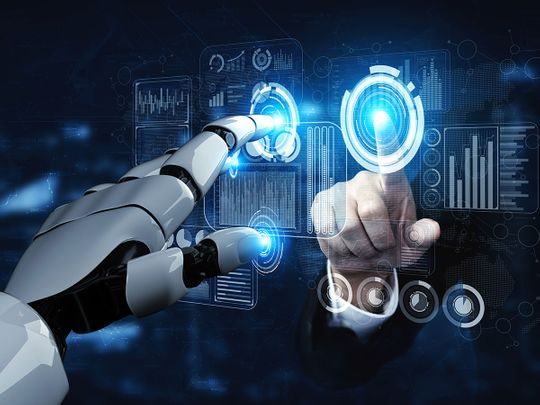
Data is the new oil - and finance is the Saudi Arabia of this ‘new oil’.
Finance is the ultimate data rich industry. The 21st century finance economy is built on data. Over the next decade, the growth of AI will help revolutionize how we analyse, manage and use this data – in financial services and beyond.
How AI will change finance is one of the mega-trends we analyse in my forthcoming book ‘FutureMoney’.
Much like how the oil-fuelled industrial economies powered the 20th century, AI and data is going to be the driving force of the 21st century. Similar to oil, data needs to be extracted and isn’t very useful in its raw state.
Data needs to be cleaned and refined to generate actionable insights. However, unlike oil, the amount of data in the world is exploding exponentially. And the more we use data, the more we create new data and insights.
The rise of AI to analyze data and generate useful insights is not new, but the launch of ChatGPT catapulted AI to centre stage in late 2022. Like any new piece of consumer-facing technology, OpenAI’s ChatGPT secret at acquiring hundreds of millions of users so quickly was its ability to generate an immediate wow factor within seconds of using it.
AI is a broad field encompassing various technologies aimed at enabling machines to perform tasks that typically require human intelligence. Generative AI builds upon the foundations of machine learning and neural networks, particularly deep learning.
Key use-cases of Generative AI that are likely to be impactful earliest include software development; information management and insights; legal and compliance; and customer engagement, sales and marketing.
Who’s up first for industry disruption
Financial markets, with their vast and interconnected information, are ripe for AI-led disruptions. Asset managers are beginning to use AI to read annual reports and regulatory filings, trawl publicly available information and create an investment strategy.
Machines analyse economic indicators, interest and FX rates, and other market trends to find deep underlying relationships, which can then be tracked to offer real-time stock recommendations.
Will AI-powered productivity tools lead to large scale destruction of jobs? How tasks are completed will change due to AI-powered jobs. Jobs, or parts of jobs will change.
Tasks involving information management and analysis, content creation, and software development are functions amongst most at risk of AI-led disruption. Humans assisted by AI will outcompete humans that are not AI trained. And lots of new jobs, as with all technology cycles, will be created.
Banking and finance could be among the most impacted sectors of the economy from AI. The World Economic Forum Future of Jobs report highlights about 60 per cent of work in banking and insurance has high potential for automation or augmentation by AI, which was the highest impact of all the sectors analysed.
Watch out for deepfakes
Probably one of the most significant risks with Generative AI lies in its ability to create highly realistic voice and video clones, which can be misused by fraudsters. Recently, a multinational company lost HK$200 million to fraudsters, after an employee was fooled with digitally recreated versions of the company’s CFO and others in a video call.
In the deepfake video, created from publicly available data, the CFO made urgent requests to execute money transfers, which led the victim to make 15 transfers into five local bank accounts.
AI is a general-purpose technology which will have a broad-based impact on the economy and society. General purposes technologies such as the steam engine or electricity have taken decades to fully realize their potential and be reflected in faster economic growth.
It is not just about innovation, but the industrialization of innovation. Business models need to change to accommodate new technologies before their full economic impact is harnessed. Similarly, the impact of AI will take time as it gets industrialised. But profound changes are underway.









